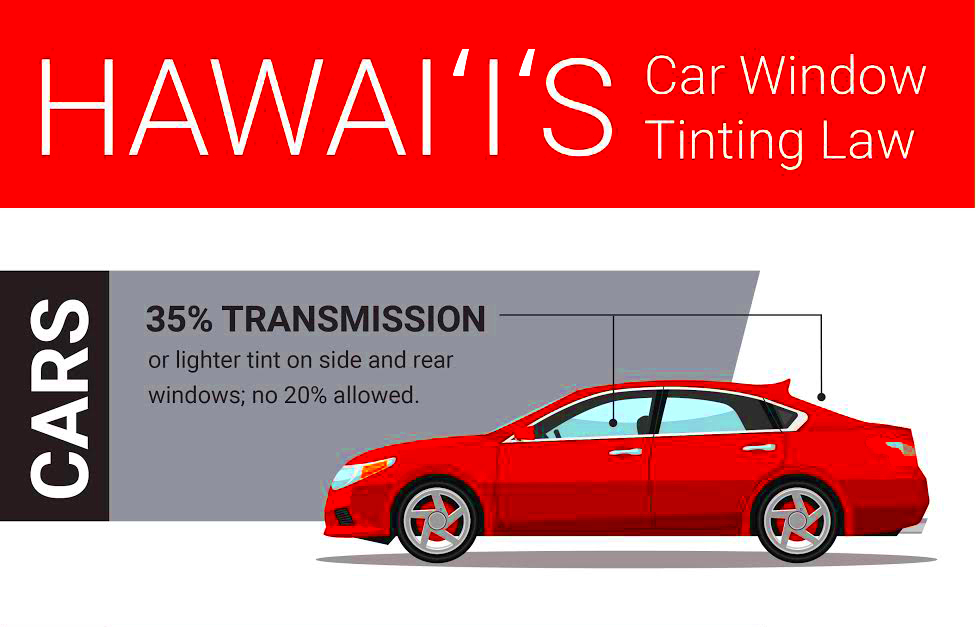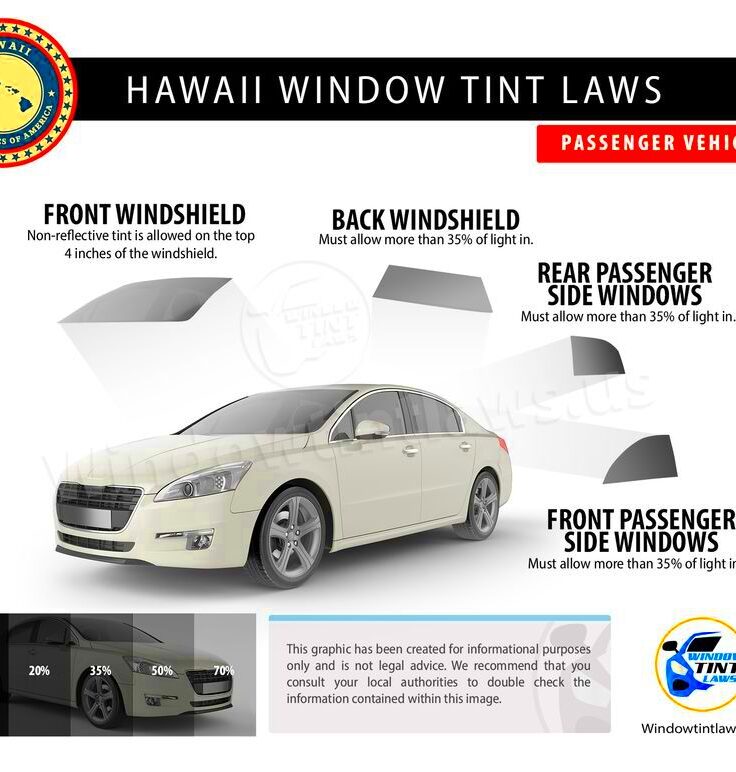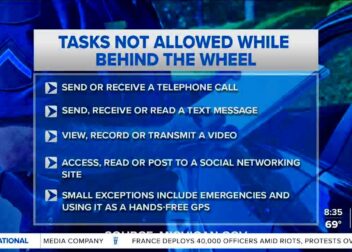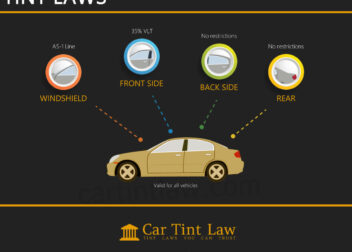Hawaii Auto Tint Law and What You Should Know
Hawaii has specific laws regarding window tinting for vehicles, designed to protect both drivers and passengers. These laws aim to ensure safety and visibility while driving. If you’re considering tinting your car windows, it’s essential to understand what is allowed and what isn’t to avoid fines and maintain your safety on the road.
Legal Limits for Window Tinting

Hawaii has strict legal limits on how dark your window tint can be. Here’s a quick breakdown of the rules:
- Windshield: The front windshield must allow more than 70% of light in.
- Front Side Windows: Must also allow over 70% of light in.
- Back Side Windows: You can have darker tint, but it must still comply with the law.
- Rear Window: Similar to back side windows, darker tint is permitted.
Remember, if your windows are tinted beyond the legal limits, law enforcement can issue a citation. Always consult with a professional to ensure your tint complies with these regulations.
Medical Exemptions for Tinted Windows
In certain situations, Hawaii allows exemptions for window tinting based on medical needs. If you have a medical condition that makes you sensitive to sunlight, you may qualify for a special exemption. Here’s how it works:
- Required Documentation: You’ll need a doctor’s note detailing your condition and the need for darker window tint.
- Application Process: Submit your medical documentation to the appropriate authority for approval.
- Window Tint Limits: Even with an exemption, your tint must still meet specific standards to ensure safety.
Always carry your exemption documentation in the vehicle, as law enforcement may ask for it during stops. This helps avoid any misunderstandings regarding your tint.
Consequences of Violating Tint Laws
Violating Hawaii’s auto tint laws can lead to several consequences that you might not want to face. It’s essential to be aware of what could happen if your tint is too dark or doesn’t comply with the regulations. Understanding these consequences can help you make informed decisions about your vehicle’s window tint.
Here are the potential repercussions for violating tint laws:
- Fines: If you’re caught with illegal tint, you could face fines ranging from $50 to $200. Repeat offenses can lead to higher fines.
- Traffic Stops: Law enforcement can pull you over for window tint violations, leading to potential tickets or warnings.
- Mandatory Removal: You may be required to remove the illegal tint immediately, which can be both time-consuming and costly.
- Increased Insurance Rates: Traffic violations can lead to increased insurance premiums, costing you more in the long run.
To avoid these consequences, always ensure your window tint complies with local laws. A little research or a consultation with a professional can save you a lot of hassle later.
Choosing the Right Tint for Your Vehicle
Choosing the right tint for your vehicle involves more than just picking a color. You need to consider various factors to ensure you get the best protection and aesthetic appeal while staying within legal limits. Here’s what to keep in mind:
- Type of Tint: There are several types of window tints, including dyed, metalized, ceramic, and hybrid. Each has its own benefits and drawbacks.
- UV Protection: Look for tints that offer UV protection to shield yourself and your vehicle’s interior from harmful rays.
- Heat Reduction: Consider tints that help reduce heat buildup in your vehicle, keeping you comfortable during hot weather.
- Visual Clarity: Ensure the tint allows for clear visibility, especially at night or in low-light conditions.
Consulting with a professional can help you navigate these options and choose a tint that fits your needs and style without violating the law.
How to Get Your Tint Checked
Getting your window tint checked is a straightforward process that can save you from potential fines and ensure your vehicle is compliant with Hawaii’s laws. Here’s how to go about it:
- Find a Professional: Look for a reputable auto shop that specializes in window tinting. They usually have the right equipment to measure your tint’s legality.
- Schedule an Appointment: Contact the shop and set a time for them to check your tint. This may only take a short time, and it’s worth the effort.
- Understand the Measurement Process: Professionals use a light meter to measure the percentage of light that passes through your windows. They will let you know if you meet legal standards.
- Document Your Results: Keep any documentation or reports provided after the check. This can be helpful if you ever get stopped by law enforcement.
By taking these steps, you can ensure your window tint is compliant, giving you peace of mind while driving.
Benefits of Window Tinting
Window tinting isn’t just about style; it offers a range of practical benefits that can enhance your driving experience. If you’re considering adding tint to your vehicle, understanding these advantages can help you make a well-informed decision. Here are some key benefits of window tinting:
- UV Protection: Tinted windows block up to 99% of harmful UV rays, protecting your skin and reducing the risk of sunburn during long drives.
- Heat Reduction: Window tinting can significantly reduce heat buildup inside your vehicle, keeping the interior cooler and more comfortable, especially during hot summer months.
- Increased Privacy: Tinted windows provide a greater level of privacy for you and your passengers. This can be particularly valuable when you’re parked in busy areas.
- Improved Aesthetics: Tinting can enhance the overall look of your vehicle, giving it a sleek and polished appearance that many drivers appreciate.
- Glare Reduction: Tinted windows help minimize glare from the sun and headlights, making driving safer and more comfortable.
- Protection of Interior: Tinting helps protect your car’s interior from fading and cracking caused by direct sunlight, preserving its value over time.
Overall, window tinting provides both aesthetic and functional benefits, making it a worthwhile investment for any vehicle owner.
Frequently Asked Questions
If you have questions about window tinting laws or practices in Hawaii, you’re not alone. Here are some common questions and their answers to help you better understand the topic:
- What is the legal tint limit in Hawaii? The front windshield must allow more than 70% of light in, while front side windows must also meet this requirement. Back side windows and rear windows can be darker.
- Can I get a medical exemption for window tinting? Yes, if you have a medical condition that makes you sensitive to sunlight, you can apply for an exemption. You’ll need a doctor’s note and approval from the relevant authorities.
- How do I know if my tint is compliant? You can have your tint checked at a professional auto shop that specializes in window tinting. They use light meters to ensure compliance with state laws.
- What are the consequences of having illegal tint? Fines, mandatory removal of tint, and possible increases in insurance rates are among the potential consequences of violating tint laws.
These FAQs can help clarify common concerns and ensure you are well-informed about window tinting regulations.
Conclusion
Understanding Hawaii’s auto tint laws and the benefits of window tinting can greatly enhance your driving experience. With the right knowledge, you can choose a tint that not only complies with the law but also offers practical advantages such as UV protection, heat reduction, and increased privacy.
Before you decide on window tinting, make sure to consult with professionals to ensure compliance with local laws. Whether you’re looking to protect your skin from UV rays or enhance the aesthetic appeal of your vehicle, window tinting can be a smart choice. Stay informed, drive safely, and enjoy the many benefits that come with a well-tinted vehicle!


